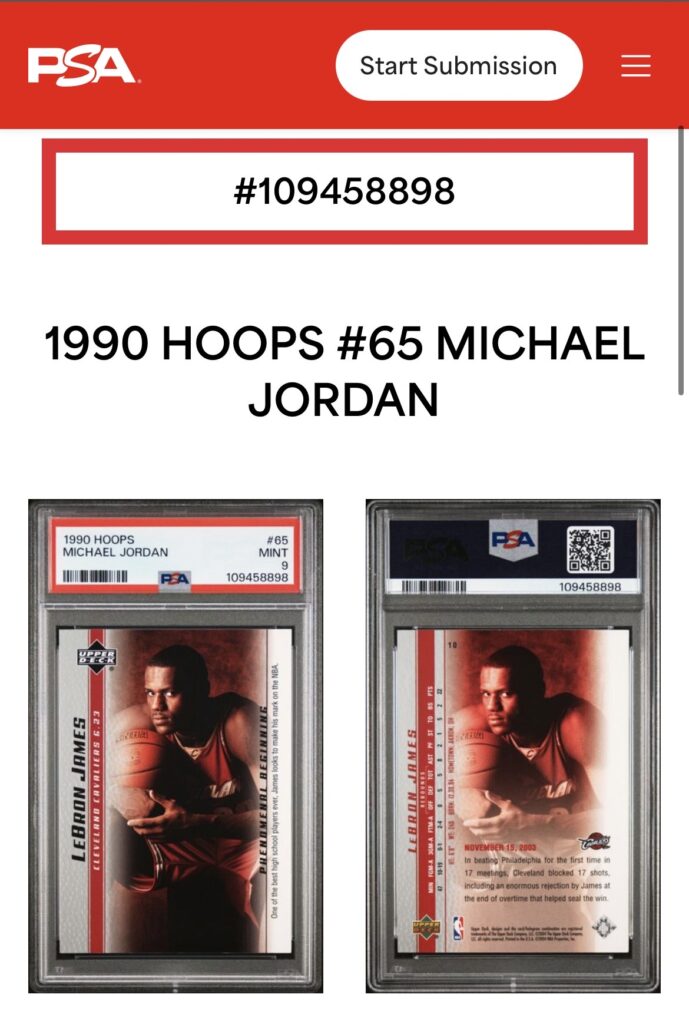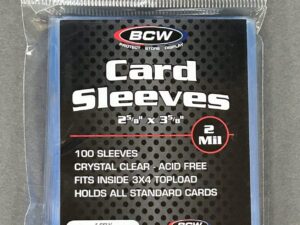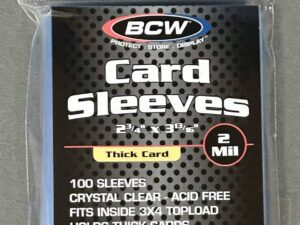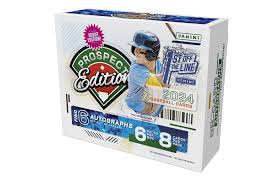

PSA is the undisputed heavyweight in card grading, handling more submissions than any other company in the hobby.
But as their workload hits new highs, even simple mistakes can slip through the cracks—and sometimes, those slips are almost unbelievable.
This article examines one such blunder: the day PSA confused a Michael Jordan card for a LeBron James rookie card, and what it reveals about the pressures and pitfalls behind the scenes at the world’s largest grader.
Here is the story of PSA’s massive blunder.

PSA made one of the dumbest mistakes imaginable. They labeled a 1990 Michael Jordan Hoops card as a 2003 Upper Deck LeBron James card, and vice versa. These events came to light in a Reddit post that appeared on May 8, 2025 on the social media site.
Today was mail day from PSA. I sent in a 1990 Hoops Michael Jordan card, which was in solid condition. I was hoping for a 10, but oh well. However, it got mixed up by the PSA graders, and they mislabeled the MJ card with a 2003 LeBron Rookie card. What do I do in this scenario? Is it more valuable to sell them as is, or try to send them back to PSA to correct the error?
You may wonder if this is real or if someone created it for attention or laughs. However, the certification confirms that this incident occurred. It also indicates that, as of now, despite being public for a few days, these cards have not yet been decertified —at least not at the time of writing.

PSA has placed several layers of quality control in place to prevent mistakes like this. They usually do catch them. According to the PSA website, there are stages a card will undergo before you get it back from the company.
PSA has achieved an impressive volume of submissions. This growth, particularly in recent months, reflects both the booming interest in trading cards and the company’s dominant position in the grading space.
According to GemRate, PSA graded over 1.56 million cards in April alone—a figure that outpaces all other major grading companies by a wide margin. This surge isn’t just a fluke; it speaks to the influx of new collectors entering the hobby and longtime enthusiasts seeking to protect and authenticate their collections.
The high volume also highlights the trust and credibility PSA has established, making it the go-to choice for grading in the current market.
A recent step will also increase the number of submissions that the company will receive. On May 8, 2025, PSA announced that it is bringing back its minimum-grade submission service, giving collectors more control over which cards get officially graded.
Now available for Value Plus service levels and above, this option lets customers set a minimum grade for their submissions if a card doesn’t meet the specified grade. This move expands a feature that was previously limited to crossover grading, where PSA only re-holders cards from other companies if they meet the customer’s set minimum grade.
For collectors who want to avoid lower grades on their slabs, this is a welcome return.
The minimum-grade option isn’t entirely new; PSA had offered it before, but paused the service during the COVID-19 backlog when grading got complicated and confusion grew around the process.
According to PSA president Ryan Hoge, revamping the user experience was key before relaunching. The aim is to make the grading process smoother and give customers more choice.
There is no question that this very popular service will increase the company’s reach and the number of submissions it receives.
To be sure, PSA gets most of its orders right. Overall, it is a company that does its job well. But we do have reason to believe that their graders are being criminally overloaded. We got some info on this from the filings in a court case.
The Lance Jackson v. Collectors Universe case centers on allegations that PSA, a subsidiary of Collectors Universe, either damaged or swapped out a valuable Kobe Bryant Topps Chrome Refractor rookie card while it was in their possession for grading.
Lance Jackson, the plaintiff, filed a personal injury claim against Collectors Universe in Orange County Superior Court on February 24, 2021. Jackson claims his well-maintained Kobe card was returned to him in worse condition, sparking the lawsuit over whether PSA mishandled or replaced the card during the grading process.
Allegedly, a PSA employee admitted that PSA had made a ‘boof,’ meaning a mistake, to the card; however, PSA reportedly refused to discuss how it would compensate the Plaintiff for the valuation difference.
According to the court filings, the Plaintiff alleges that PSA graders process approximately 300 cards per day, eight hours a day, five days a week, and that their supervisors review 1,500 cards a day.
According to the same filing, the graders “take no notes, written or verbal, as for their reasons for assigning a numerical grade” and that “[t]hey merely input a number.”
If you look at one or two cards, they may seem similar enough. But over time, that is too little time on each card, and you would start to lose focus. You could expect the following problems to arise:
Sustained, repetitive tasks, such as grading hundreds of cards in a day, lead to cognitive fatigue. As graders push through a stack of cards, their attention naturally wanes, especially after a few hours.
This can result in missed flaws, inconsistent grading, and an increased likelihood of error as the day progresses.
Making hundreds of judgment calls in a row, even on something as standardized as card grading, inevitably leads to decision fatigue.
Research shows that as people make more decisions, their ability to assess each new case objectively declines. Early cards in a pile might get more scrutiny than those near the end of a shift.
If graders “take no notes, written or verbal, as to their reasons for assigning a numerical grade,” there is no audit trail.
This means mistakes can’t be traced or understood after the fact, and there’s no way to double-check reasoning. It makes both quality control and accountability much harder.
If supervisors are reviewing 1,500 cards a day, their review is almost certainly cursory. Supervisory oversight becomes a formality rather than a meaningful check on quality, and systemic mistakes or biases are more likely to go unnoticed.

Without notes or robust feedback loops, graders often rely on memory and intuition, which can fluctuate throughout the day or between graders.
This makes it nearly impossible to enforce consistent grading standards, especially for subtle flaws or cards that don’t fit neatly into one grade.
The repetitive, high-volume environment can deskill graders, turning what should be a careful, expert judgment into a mechanical, rote task. Over time, this can lead to disengagement, lower morale, and an increase in errors.
When graders “input a number” without providing a supporting explanation, it’s easy for both honest mistakes and lapses in judgment to go unchallenged.
There’s no way to identify patterns of error or target additional training for struggling graders.
All of this creates a situation where the pace of work is directly at odds with careful, high-quality grading, especially when dealing with high-value collectibles where minor differences matter.
The lack of documentation and rapid pace make it almost inevitable that mistakes will occur, and it is difficult for PSA or customers to get meaningful recourse when they do.
Why is the amount of time so low? The truth is, PSA is quite understaffed, especially regarding the grading side. Like most modern corporations, they are top-heavy.
The organization reportedly employs 1,700 people, but only one in 17, or around 100 of its employees, are graders. The graders themselves are generally not public-facing, and their identities are kept confidential.
PSA uses a multi-step grading process so that a single card might pass through more than one grader for review, but the core grading team is relatively lean compared to the total staff size.
In the end, the LeBron–Jordan card mistake isn’t just a funny story or a one-off slip—it’s a window into the real, human limitations of even the biggest names in grading.
PSA’s scale is impressive, but the volume comes at a cost. As the company takes on more cards and the pressure on graders mounts, the cracks become visible: mislabeling, overlooked details, and sometimes a lack of accountability when things go wrong.
The fact that a Michael Jordan card can end up labeled as a LeBron rookie, despite so many built-in checks, shows that no process is immune to error when speed outweighs attention.
Collectors trust PSA because of its reputation, but trust isn’t just about numbers—it’s about the feeling that someone looked at your card and cared about getting it right.
That trust erodes every time a high-profile mistake surfaces or when customers feel stonewalled after a “boof.”
If PSA wants to remain the gold standard as submissions skyrocket, it needs to rethink how it balances efficiency with care. More graders, more time per card, and a willingness to own up to mistakes—these are the things that will keep confidence high as the hobby continues to grow.
Until then, stories like this one are a reminder: even giants can trip over the basics when they move too fast.
Topps Chrome 2024-25 Basketball: Honest Review and Notes
Did you know this SECRET about PSA slabs? #sportscard #tcg
5 EASY tips to make more money on eBay sports cards.
I opened a sports card mystery box and found something AWESOME inside
The SAD story of Collectable. What went wrong? (The Downfall Fractional Sports Card Investing)
what was Panini doing? 🙄
I compared sports card prices from the big sellers to save YOU money
Is GameStop buying PSA? (the truth!)




BCW Thick Card Toploaders 197 Pt. 10 per pack

BCW Thick Card 59 Pt. Toploaders. 25 per pack

BCW 20 Pt. Toploaders. 25 per pack

BCW Standard Card Sleeves. 100 per pack

BCW Thick Card Sleeves. 100 per pack





2022 Topps Heritage Baseball Blaster Box Configuration: 7 Packs per Box – 9 Cards per Box. Plus 1 extra pack.



Keep up on breaking Sports Card News, our latest articles, product specials and exclusive content with expert analysis of hobby trends.

© Copyright 2025 - All rights reserved Cardlines.com / Media Techs LLC - Sports Card News, Reviews, Releases and BREAKS - #thehobby.
Important: When you click on links to various merchants on this site and make a purchase, this can result in this site earning a commission. Affiliate programs and affiliations include, but are not limited to, the eBay Partner Network.
Panini is launching a WNBA Product at $30,000!?
Cardlines June 27, 2025 5:54 am